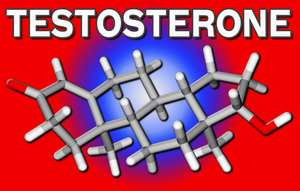Introduction
Vardenafil, commonly known by its brand names Levitra and Staxyn, is a phosphodiesterase type 5 (PDE5) inhibitor used primarily for the treatment of erectile dysfunction (ED). While its efficacy in improving sexual function is well-documented, less attention has been paid to its potential effects on hormonal levels in American men. This article explores the biochemical influence of vardenafil on key hormones, providing insights into its broader physiological impacts.
Mechanism of Action
Vardenafil works by inhibiting the enzyme PDE5, which is responsible for the degradation of cyclic guanosine monophosphate (cGMP). By increasing cGMP levels, vardenafil enhances smooth muscle relaxation in the corpus cavernosum, facilitating penile erection. However, the effects of vardenafil extend beyond the vascular system, potentially influencing hormonal regulation.
Impact on Testosterone Levels
Testosterone, the primary male sex hormone, plays a crucial role in sexual function, muscle mass, and overall well-being. Studies have shown that vardenafil can indirectly affect testosterone levels. One study found that men with ED who were treated with vardenafil experienced a significant increase in free testosterone levels compared to placebo. This increase may be attributed to improved sexual function and satisfaction, which can positively influence the hypothalamic-pituitary-gonadal axis.
Effects on Luteinizing Hormone
Luteinizing hormone (LH) is essential for testosterone production, as it stimulates the Leydig cells in the testes to produce testosterone. Research suggests that vardenafil may influence LH levels. A clinical trial demonstrated that vardenafil treatment led to a modest increase in LH levels in men with ED. This finding suggests that vardenafil may enhance the signaling pathway that regulates testosterone production, thereby supporting hormonal balance.
Influence on Prolactin
Prolactin, a hormone primarily associated with lactation, can also affect sexual function in men. Elevated prolactin levels are known to cause ED. Vardenafil has been shown to have a beneficial effect on prolactin levels. A study reported that men treated with vardenafil experienced a significant reduction in prolactin levels, which may contribute to improved erectile function and overall sexual health.
Potential Impact on Cortisol
Cortisol, the primary stress hormone, can have detrimental effects on sexual function and overall health when chronically elevated. While direct studies on the impact of vardenafil on cortisol levels are limited, some evidence suggests that improved sexual function and satisfaction associated with vardenafil use may lead to reduced stress levels and, consequently, lower cortisol levels. This indirect effect could contribute to a more balanced hormonal profile in American men.
Clinical Implications and Considerations
Understanding the hormonal effects of vardenafil is crucial for optimizing treatment strategies for American men with ED. Clinicians should consider the potential impact on testosterone, LH, prolactin, and cortisol levels when prescribing vardenafil-based medications. Monitoring these hormones may provide valuable insights into the overall health and well-being of patients, allowing for personalized treatment plans.
Conclusion
Vardenafil, marketed as Levitra and Staxyn, not only addresses erectile dysfunction but also exerts a significant influence on hormonal levels in American men. By enhancing testosterone and LH levels, reducing prolactin, and potentially lowering cortisol, vardenafil contributes to a more balanced hormonal profile. As research continues to uncover the biochemical effects of vardenafil, healthcare providers can better tailor treatments to improve the sexual and overall health of their male patients.
Contact Us Today For A Free Consultation

- Unraveling the Power of Potency: The Brilliant Inception of Levitra [Last Updated On: February 25th, 2025] [Originally Added On: February 25th, 2025]
- Rapid Triumph of Staxyn: A Revolutionary Game-Changer in Erectile Dysfunction Treatment [Last Updated On: February 26th, 2025] [Originally Added On: February 26th, 2025]
- Understanding Vardenafil: A Comparative Analysis of Levitra and Staxyn [Last Updated On: February 27th, 2025] [Originally Added On: February 27th, 2025]
- Unveiling the Wizardry of Vardenafil: A Scientific Journey from Laboratory to Lifestyle Solutions [Last Updated On: February 28th, 2025] [Originally Added On: February 28th, 2025]
- Revolutionizing Therapeutic Interventions: The Levitra Narrative [Last Updated On: February 28th, 2025] [Originally Added On: February 28th, 2025]
- Unveiling Staxyn: A Pioneer in On-Demand Erectile Dysfunction Treatment [Last Updated On: March 1st, 2025] [Originally Added On: March 1st, 2025]
- Introduction Into PDE5 Inhibitors And Erectile Dysfunction Treatment [Last Updated On: March 2nd, 2025] [Originally Added On: March 2nd, 2025]
- Comparative Analysis of Levitra and Staxyn: Evaluating Vardenafil-Based Medications for Erectile Dysfunction Treatment [Last Updated On: March 3rd, 2025] [Originally Added On: March 3rd, 2025]
- Navigating the Landscape of Erectile Dysfunction: A Comprehensive Comparison of Vardenafil and Its Alternatives [Last Updated On: March 3rd, 2025] [Originally Added On: March 3rd, 2025]
- Vardenafil's Transformative Impact on Erectile Dysfunction Treatment [Last Updated On: March 4th, 2025] [Originally Added On: March 4th, 2025]
- Levitra's Role in Enhancing Erectile Dysfunction Treatment and Quality of Life [Last Updated On: March 5th, 2025] [Originally Added On: March 5th, 2025]
- Staxyn: A Quick-Acting, Discreet Option for Treating Erectile Dysfunction [Last Updated On: March 6th, 2025] [Originally Added On: March 6th, 2025]
- Understanding Vardenafil: A Comprehensive Guide to Levitra for Erectile Dysfunction Treatment [Last Updated On: March 7th, 2025] [Originally Added On: March 7th, 2025]
- Understanding Vardenafil: A Comprehensive Guide to Treating Erectile Dysfunction Safely and Effectively [Last Updated On: March 8th, 2025] [Originally Added On: March 8th, 2025]
- Levitra: Pivotal Role in Men's Health - Efficacy, Benefits, and Future Perspectives [Last Updated On: March 9th, 2025] [Originally Added On: March 9th, 2025]
- Unveiling the Power of Vardenafil: Real-Life Success with Levitra and Staxyn [Last Updated On: March 9th, 2025] [Originally Added On: March 9th, 2025]
- Unlocking the Speed of Staxyn: The Science Behind Fast-Dissolving ED Medication [Last Updated On: March 12th, 2025] [Originally Added On: March 12th, 2025]
- Exploring the Versatility of Vardenafil in Treating Erectile Dysfunction in American Men [Last Updated On: March 13th, 2025] [Originally Added On: March 13th, 2025]
- Vardenafil: Dosage, Benefits, and Precautions for Treating Erectile Dysfunction [Last Updated On: March 14th, 2025] [Originally Added On: March 14th, 2025]
- Navigating the Conversation: A Guide to Discussing Vardenafil for Erectile Dysfunction with Your Doctor [Last Updated On: March 15th, 2025] [Originally Added On: March 15th, 2025]
- Vardenafil: Potent ED Solution with Levitra and Staxyn's Unique Features [Last Updated On: March 17th, 2025] [Originally Added On: March 17th, 2025]
- Vardenafil: Empowering American Men to Overcome Erectile Dysfunction [Last Updated On: March 17th, 2025] [Originally Added On: March 17th, 2025]
- Vardenafil: A Comprehensive Overview of Levitra and Staxyn for Erectile Dysfunction Treatment [Last Updated On: March 18th, 2025] [Originally Added On: March 18th, 2025]
- Levitra and Vardenafil: Revolutionizing ED Treatment in America [Last Updated On: March 18th, 2025] [Originally Added On: March 18th, 2025]
- Staxyn: Fast-Acting ED Solution for Modern American Men's Busy Lifestyles [Last Updated On: March 19th, 2025] [Originally Added On: March 19th, 2025]
- Levitra and Staxyn: Understanding ED Treatment and Managing Side Effects Effectively [Last Updated On: March 19th, 2025] [Originally Added On: March 19th, 2025]
- Staxyn: Rapid-Onset Vardenafil for Effective ED Treatment in American Males [Last Updated On: March 20th, 2025] [Originally Added On: March 20th, 2025]
- Vardenafil: Innovations and Trends in Treating Erectile Dysfunction [Last Updated On: March 21st, 2025] [Originally Added On: March 21st, 2025]
- Staxyn, Levitra, Vardenafil: Transforming Lives of American Men with ED [Last Updated On: March 21st, 2025] [Originally Added On: March 21st, 2025]
- Vardenafil: Balancing Sexual Health Benefits with Cardiovascular Risks in American Men [Last Updated On: March 21st, 2025] [Originally Added On: March 21st, 2025]
- Debunking Myths: Understanding Vardenafil's Role in Treating Erectile Dysfunction [Last Updated On: March 21st, 2025] [Originally Added On: March 21st, 2025]
- Comparing Levitra, Staxyn, and Generic Vardenafil for Effective ED Treatment [Last Updated On: March 22nd, 2025] [Originally Added On: March 22nd, 2025]
- Levitra vs. Staxyn: Personalized ED Treatment Options for American Men [Last Updated On: March 22nd, 2025] [Originally Added On: March 22nd, 2025]
- Vardenafil: Enhancing Sexual Health with Levitra and Staxyn [Last Updated On: March 22nd, 2025] [Originally Added On: March 22nd, 2025]
- Staxyn: Fast-Acting ED Solution for Busy American Men [Last Updated On: March 22nd, 2025] [Originally Added On: March 22nd, 2025]
- Vardenafil: Enhancing Life Beyond ED for American Males [Last Updated On: March 22nd, 2025] [Originally Added On: March 22nd, 2025]
- Vardenafil Variants: Levitra, Staxyn, and Generic Options for Treating Erectile Dysfunction [Last Updated On: March 23rd, 2025] [Originally Added On: March 23rd, 2025]
- Staxyn: Revolutionizing ED Treatment with Orally Disintegrating Vardenafil Tablets [Last Updated On: March 23rd, 2025] [Originally Added On: March 23rd, 2025]
- Levitra and Staxyn: Efficacy, Safety, and Satisfaction in Treating Erectile Dysfunction [Last Updated On: March 23rd, 2025] [Originally Added On: March 23rd, 2025]
- Staxyn: Effective ED Treatment, Usage Guidelines, and Safety Tips [Last Updated On: March 23rd, 2025] [Originally Added On: March 23rd, 2025]
- Staxyn: Vardenafil-Based ED Treatment with Unique Oral Disintegration [Last Updated On: March 23rd, 2025] [Originally Added On: March 23rd, 2025]
- Staxyn: Fast-Acting Vardenafil for Erectile Dysfunction - Benefits and Usage Guide [Last Updated On: March 23rd, 2025] [Originally Added On: March 23rd, 2025]
- Staxyn: Rapid Relief for ED with Vardenafil's Quick Action [Last Updated On: March 24th, 2025] [Originally Added On: March 24th, 2025]
- Levitra: Enhancing Sexual Health and Emotional Intimacy in American Males [Last Updated On: March 24th, 2025] [Originally Added On: March 24th, 2025]
- Levitra and Heart Health: Risks, Precautions, and Safe Use for American Males [Last Updated On: March 24th, 2025] [Originally Added On: March 24th, 2025]
- Staxyn: Revolutionizing ED Treatment with Vardenafil's Fast-Acting ODT Formulation [Last Updated On: March 24th, 2025] [Originally Added On: March 24th, 2025]
- Erectile Dysfunction: Understanding Levitra, Vardenafil, Staxyn Treatments and Holistic Management [Last Updated On: March 24th, 2025] [Originally Added On: March 24th, 2025]
- Levitra and Staxyn: Enhancing ED Management with Diet, Exercise, and Psychological Support [Last Updated On: March 24th, 2025] [Originally Added On: March 24th, 2025]
- Vardenafil: Enhancing Sexual Health with Levitra and Staxyn Variants [Last Updated On: March 24th, 2025] [Originally Added On: March 24th, 2025]
- Staxyn: Managing Interactions for Optimal ED Treatment in American Men [Last Updated On: March 25th, 2025] [Originally Added On: March 25th, 2025]
- Vardenafil's Evolution: From Levitra to Staxyn in Treating American Men's ED [Last Updated On: March 25th, 2025] [Originally Added On: March 25th, 2025]
- Levitra and Staxyn: Effective ED Solutions and Usage Guidelines [Last Updated On: March 25th, 2025] [Originally Added On: March 25th, 2025]
- Vardenafil: Effective Treatment for Diabetic Erectile Dysfunction in American Men [Last Updated On: March 25th, 2025] [Originally Added On: March 25th, 2025]
- Levitra and Staxyn: Boosting Sexual Confidence and Enhancing Life Quality [Last Updated On: March 26th, 2025] [Originally Added On: March 26th, 2025]
- Vardenafil: Beyond ED - Cardiovascular, Mental, and Prostate Health Benefits for Men [Last Updated On: March 26th, 2025] [Originally Added On: March 26th, 2025]
- Vardenafil: Effective ED Treatment Enhancing Sexual Function and Quality of Life [Last Updated On: March 26th, 2025] [Originally Added On: March 26th, 2025]
- Vardenafil vs. Viagra: Efficacy, Onset, Duration, and Safety for American Men with ED [Last Updated On: March 27th, 2025] [Originally Added On: March 27th, 2025]
- Levitra and Staxyn: Revolutionizing ED Treatment in American Men [Last Updated On: March 27th, 2025] [Originally Added On: March 27th, 2025]
- Levitra and Staxyn: A Comprehensive Guide for Managing Erectile Dysfunction [Last Updated On: March 27th, 2025] [Originally Added On: March 27th, 2025]
- Staxyn and Vardenafil: Usage, Dosage, and Efficacy for American Men with ED [Last Updated On: March 27th, 2025] [Originally Added On: March 27th, 2025]
- Vardenafil: Enhancing Sexual Performance and Confidence in American Males [Last Updated On: March 27th, 2025] [Originally Added On: March 27th, 2025]
- Levitra and Variants: Transforming ED Treatment with Expert Insights [Last Updated On: March 28th, 2025] [Originally Added On: March 28th, 2025]
- Staxyn and Telemedicine: Revolutionizing ED Treatment for American Men [Last Updated On: March 28th, 2025] [Originally Added On: March 28th, 2025]
- Levitra: Enhancing Mental Health and Overcoming ED Stigma in American Men [Last Updated On: March 28th, 2025] [Originally Added On: March 28th, 2025]
- Vardenafil Dosage Guide: Levitra, Generic, and Staxyn for ED Treatment [Last Updated On: March 29th, 2025] [Originally Added On: March 29th, 2025]
- Vardenafil's Role in Managing Erectile Dysfunction in Aging Men: Levitra and Staxyn [Last Updated On: March 29th, 2025] [Originally Added On: March 29th, 2025]
- Levitra vs. Staxyn: Vardenafil Formulations and Their Impact on ED Treatment [Last Updated On: March 29th, 2025] [Originally Added On: March 29th, 2025]
- Vardenafil: Enhancing Sexual Health in American Men - Efficacy, Safety, and Usage [Last Updated On: March 29th, 2025] [Originally Added On: March 29th, 2025]
- Staxyn: Revolutionizing ED Treatment with Rapid-Acting Oral Disintegrating Tablets [Last Updated On: March 29th, 2025] [Originally Added On: March 29th, 2025]
- Managing Erectile Dysfunction: Insights on Levitra, Vardenafil, Staxyn, and Doctor Communication [Last Updated On: March 30th, 2025] [Originally Added On: March 30th, 2025]
- Vardenafil: Enhancing Libido and Sexual Health in American Men with Levitra and Staxyn [Last Updated On: March 30th, 2025] [Originally Added On: March 30th, 2025]
- Vardenafil's Future: Advancements in ED Treatment and Delivery Systems [Last Updated On: March 30th, 2025] [Originally Added On: March 30th, 2025]
- Levitra and Staxyn: Cost Analysis, Insurance, and Economic Impact for ED Treatment [Last Updated On: April 1st, 2025] [Originally Added On: April 1st, 2025]
- Vardenafil: Treating ED in American Males - Side Effects and Management [Last Updated On: April 3rd, 2025] [Originally Added On: April 3rd, 2025]
- Staxyn: Fast-Acting ED Solution with Vardenafil, Enhancing Men's Sexual Health [Last Updated On: April 5th, 2025] [Originally Added On: April 5th, 2025]
- Vardenafil: Tailoring ED Treatment to Modern American Men's Lifestyles [Last Updated On: April 6th, 2025] [Originally Added On: April 6th, 2025]
- Media Influence on American Males' Use of Levitra and Staxyn for ED Treatment [Last Updated On: April 7th, 2025] [Originally Added On: April 7th, 2025]
- Staxyn: Revolutionizing ED Treatment with Rapid-Acting Vardenafil ODT [Last Updated On: April 9th, 2025] [Originally Added On: April 9th, 2025]
- Staxyn: A Convenient, Effective ED Treatment with Faster Onset [Last Updated On: April 9th, 2025] [Originally Added On: April 9th, 2025]
- Staxyn: Revolutionizing ED Treatment with Rapid-Onset Orally Disintegrating Tablets [Last Updated On: April 9th, 2025] [Originally Added On: April 9th, 2025]
Word Count: 526





















